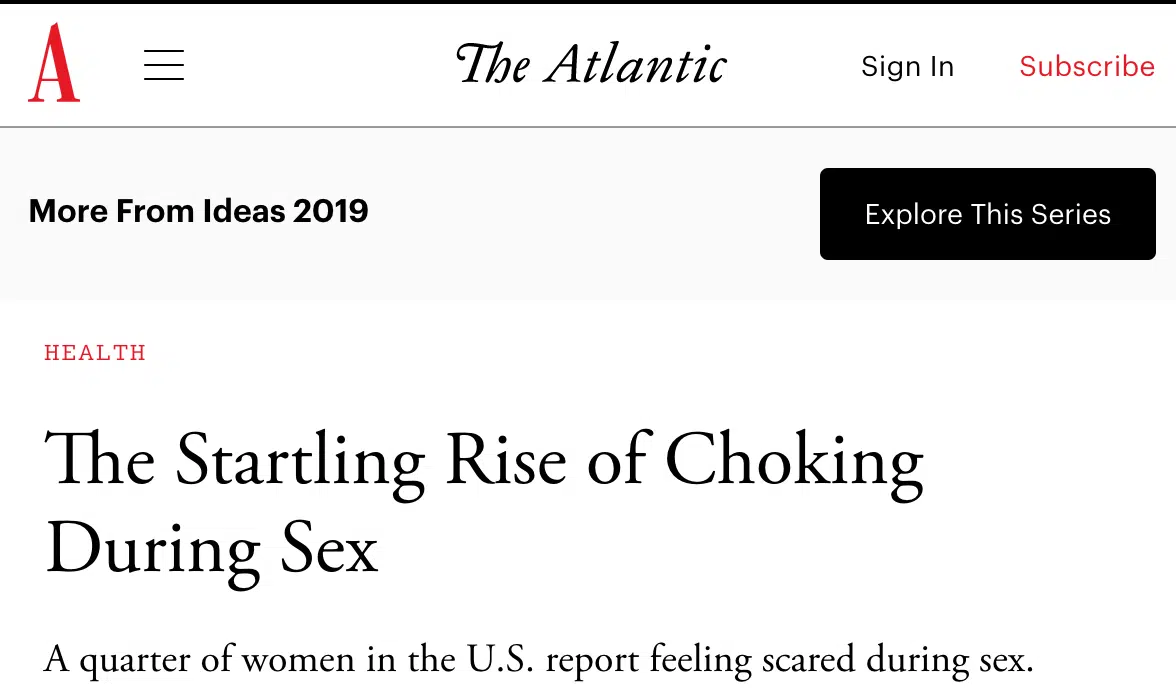The purpose of this article is to show the importance of the theology of the body (TOB) of St. John Paul II in explaining the meaning of adultery and, by implication, the true meaning of marriage. To accomplish this purpose we are going to develop the following subtopics:
- The failure of the concept of sex based only on consent
- The view on the human person St. John Paul II provides in his TOB
- The concept of adultery according to the TOB
- The teaching of Jesus about adultery in the heart
- The Gospel values Jesus taught against adultery in the heart

The Woman Taken in Adultery by Guercino
The Failure of the Concept Sex Based Only on Consent
Fr. Shenan J. Boquet, President of HLI, published a very illuminating article about the false concept of sex based solely on consent: Rediscovering a Christian Vision of Sex and Marriage. The idea came from writer Christine Emba, whose proposal Fr. Boquet summarized very well:
The Washington Post published a remarkable essay calling for the development of a “new sexual ethic.” As the author, Christine Emba, argues, instead of the modern sexual ethic that judges sexual encounters based upon “consent” alone, what we need is a new ethic that will advocate such things as sex within a context of “listening,” “care,” and “mutual responsibility.”
Fr. Boquet goes on to explain and analyze the thesis set forth by Emba, which can be encapsulated in the powerful sentence, “Sex based on consent is a recipe for disaster.” To substantiate her point, Emba describes several negative and evil sexual encounters in which young women suffered choking experiences at the hands of their male sexual partners. The women came out horrified and disturbed.

From The Washington Post
However, these dreadful sexual experiences are not just isolated to a few cases of sexually deviated young men. As Fr. Boquet indicates:
In 2019, The Atlantic published a story with the nauseating headline, “The Startling Rise of Choking During Sex.” The subheadline notes that “a quarter of women in the U.S. reporting feeling scared during sex.” In one study involving 347 participants, 23 said that their partners have tried to choke them “unexpectedly” during sex. Women are also reporting a rise in a variety of other violent sexual behaviors – many of which are too disturbing and graphic to describe here.

From The Atlantic
Then Fr. Boquet goes on to explain that these bizarre and disturbing behaviors are the result, in many cases, of men watching hard and violent pornography, a behavior these men feel inclined to replicate in real life. Pornographic addiction makes the theory about sex based solely on consent even worse, with no powerful counter-argument in sight in the secular world. Yes, Emba makes a great contribution to the efforts of salvaging sexual relations from barbarism and violence, and of including in the consent such beautiful values as listening, care, and mutual responsibility. She even rediscovers St. Thomas Aquinas’ simple yet accurate definition of love as “willing the good of the other.”
But is that enough? Fr. Boquet rightly thinks that it is not. He goes on to explain:
But this is no more than a case of moving deckchairs on the Titanic. It doesn’t address the fundamental problem. It ignores the fact that “causal sex” is a contradiction in terms. No matter how hard we try to rewrite the meaning of sex, the sexual act nevertheless has certain meanings built into it that cannot be eradicated. It is a profoundly intimate act – an act that is proper and exclusive to spouses (Catechism of the Catholic Church, no. 2360). In conjugal love, spouses say to one another, “I give myself to you, unreservedly, totally.” It is a giving and a receiving, always and ultimately ordered to procreation and the union of spouses.
This is precisely where the theology of the body of St. John Paul II comes in to develop what Fr. Boquet has correctly stated. As strange as it might seem, it is the teaching of the Holy Father on adultery based on the Word of God that completely debunks the consent-only ideology. Furthermore—and this is of capital importance—it recaptures the objectivity of conjugal love and of marriage.
The Main Flaw of Consent-Only Sex
The main flaw of the consent-only ideology to justify all kinds of sexual activity is twofold:
- Its lack of an objective basis on the truth about the human person
- Its reduction of consent to good feelings and emotions
Once you reduce the justification for sexual relations to the level of subjective feelings, no matter how true and beautiful these feelings might be, you have fallen into subjectivism. And there is no objective barrier whatsoever to prevent consent from deviating into selfishness, hurtful practices, such as choking, and all kinds of aberrations.
Moreover, if you lack a correct and objective concept of what it means to be a man and a woman, and what the true meaning and purpose of human sexuality is, your attempt to discover a “new sexual ethic” that replaces the consent only ideology is doomed from the start. Emba discovered St. Thomas Aquinas’ definition of love as “willing the good of the other.” But if you don’t even know what a human person is, how can you know what his or her good is?
The theology of the human body that St. John Paul II developed in his catechesis provides a view of the human person that throws light on both the subjective and objective dimensions of God’s revelation about man, woman, and the life-giving and unifying love between the two within the context of marriage, one and indissoluble.
The View of the Human Person in the TOB
Following Church doctrine, the Holy Father teaches us that the human person is a substantial (not accidental) composite of body and soul. The Pope draws out the logical implication of this truth by affirming that the human body expresses or reveals the person. And since human nature provides us with only male and female bodies, it follows that the human person has only two modalities of ontological existence: man and woman. (By “ontological existence” we mean existence based on being, not on passing feelings or ideas.) As we shall see further below: this duality and complementarity of masculinity and femininity is the objective basis of the original love and life-giving unity between man and woman as created by God from the beginning.
St. John Paul II insisted in both human subjectivity and the objectivity of the human body. In this way, he presented to us a full picture of what it means to be a human person. Unfortunately, today our culture presents to us a reductive view of the human person, usually limited to the selfish pursuit of the pleasures of the body without any guidance from true values and moral principles. But it is only with a complete view of the human person based on reason and God’s revelation that we can have a correct view on marriage and human sexuality.
In his catechesis, the Pope insists, as Church teaching does, that conjugal relations, and even marriage itself, have an objective basis that is indisputable: the human body. Let us be more precise. The Holy Father insists that what makes possible the objective unity between man and woman in marriage is their respective masculinity and femininity. He insists on the sexual distinction and complementarity of man and wife. This is the objective human basis for marriage from the very beginning of creation.
However, the objectivity of the human bodies of man and woman need the “subjectivity” of their interior lives. Men and women are not only bodies. They have spiritual and immortal souls that constitute the living principles of their bodies. Moreover, thanks to their souls, they possess a subjectivity, an interior life in which virtues and values reside.
Subjectivity vs. Subjectivism
At this point, it is important to clarify that subjectivity is not the same as subjectivism. In fact, the two are opposites. Subjectivity refers to the interior spiritual life of the human person in which important and objective values and virtues reside. In classical language, subjectivity refers to the intellect and the will, but also to those feelings and passions that are under the guidance of the will and the intellect. In biblical language, subjectivity is expressed by means of the powerful concept of the heart: the interior spiritual center of the human person, where he or she makes his most important decisions.
On the other hand, subjectivism is based on feelings and ideas that come and go and that have no basis in objective reality or the human body. The concept of sex based only on consent is just one more example of subjectivism. That is why it does not work. In fact, given our fallen inclinations, it is no surprise that it is a recipe for disaster.
Moreover, St. John Paul II also insisted that there should be a continuity between the subjective interior of the human person and the objective existence of moral commandments. The values that reside in the interior of the virtuous person are the subjective counterparts of the objective goods that the commandments of God promote and defend. What is interesting about this view is that the objective goods the commandments defend and promote are the objective goods that reside in the human person himself, especially in his or her body. For example, the subjective value of openness to life in a married couple corresponds and is based on the objective biological dynamism, inscribed by God in their bodies, that makes procreation possible.
To be more precise, we must add that once the human person accepts and cherishes an objective human good in his interior life (subjectivity), then that objective good becomes a subjective value, without losing at all its objective foundation. Human values are the same things as objective goods but looked at from the perspective of their subjective acceptance.
The Concept of Adultery in the TOB
Based on this view of the human person, St. John Paul II develops his teaching on adultery on cycle 2 of his catechesis on the theology of the body, especially catechesis 25, 35-40, and 43. This cycle is called “Purity of Heart.” The key point is that only hearts of men and women cleansed from sexual impurity can give and receive each other in loving and life-giving sexual relations within the objective context of marriage.
St. John Paul II begins with the Old Testament, where God had clearly condemned adultery in both its outward bodily expression in the sixth commandment: “Thou shalt not commit adultery” (Exodus 20:14, see also Deuteronomy 5:18) and in its inward desire in the ninth commandment: “Thou shalt not covet thy neighbor’s wife” (Exodus 20:17, see also Deuteronomy 5:21). Jesus brought these two dimensions together in His teaching against adultery of the heart.
The definition of adultery that emerges from the Old Testament is very precise and objective. It is a sexual act committed by a man and a woman not married to each other and in which at least one of them is already married. It is precise and objective, because it involves the bodies of a man and of a woman not married to each other. As such, it is a bodily sin, a sin of the flesh, even though it does have a subjective origin in the heart, especially in coveting the wife of one’s neighbor.
However, as the Holy Father explains, the practical interpretation of the legal tradition of the Old Testament tended to obscure the profound meaning of adultery and thus the grave injustice such a sin committed against the marriage covenant and the innocent man or woman thus offended. The practical interpretation of the legal tradition of the Old Testament regarding adultery was marred by its toleration of polygamy and divorce. Regarding polygamy, this awful activity was practiced by the Patriarchs (Abraham, Isaac, and Jacob), who were considered religious models by the People of Israel. It was also practiced by their kings, including King David and his son King Solomon.

David and Bathsheba by Artemisia Gentile (PD-1996)
Therefore, under this legal tradition, the prohibition against coveting the wife of one’s neighbor extended only to those wives who were legally his. It did not extend to his concubines, mistresses, or any other woman, for that matter. This unfortunate misinterpretation of the law of God tended to destroy His original plan for marriage and certainly the sexual purity of the heart needed to accomplish it. By implication, it also made divorce easier.
It was the prophetic tradition, St. John Paul II explains, the one that brought to the forefront the oneness and indissolubility of marriage that God had planned from the beginning, and that Jesus defended against the Pharisees in Matthew 19:3-9 (the subject of Cycle 1). The Prophets Isaiah, Jeremiah, Hosea, and Ezekiel used the analogy of marriage to condemn idolatry and to call Israel back to fidelity to God. By comparing idolatry to adultery, these prophets taught that God was the Husband of Israel, His Bride. To commit idolatry was tantamount to be unfaithful to the covenant with God by going after other gods. It was the same as betraying the indissolubility of the bond between Israel and Yahweh (God). Furthermore, since Yahweh rightfully claimed to be Israel’s only God and sole husband, it was easy to see that polygamy and divorce made no sense in Israel’s daily life.
Unfortunately, the prophets were not successful in convincing all of Israel of the indissolubility and oneness of marriage nor of the evil of idolatry. Many of them were even killed or thrown into exile by their own people. Only a tiny remnant of Israel remained faithful. Even Solomon, son of David, fell into idolatry. Sadly, this is why around 600 years before Christ, God punished Israel. The Babylonians invaded and destroyed Jerusalem, including the Temple, and took captive the leaders of Israel. But at least the prophets were able to leave, for future generations, their teachings on the objective dimension of the marriage covenant thanks to the analogy of God-Israel to Husband-Wife.
After the Babylonian Capitivity, which lasted about 70 years, the People of Israel, devoid of kings and even prophets, experienced a kind of rebirth in their wisdom literature (Wisdom, Sirach, Proverbs, Psalms, Job, Ecclesiastes, Song of Solomon) These books described in very vivid and dreadful terms the horror of interior lust, especially of those foolish young men who went after harlots. See, for example, Proverbs 6:20-35. In this way, the sages of Israel emphasized the subjective and interior dimension of conjugal love.
This literature, so close in time to Jesus’ coming, prepared the way in the hearts of his listeners to His teachings on the goodness of marriage and the evil of adultery. Christ perfected and made universal what the prophets and the Wisdom literature taught to the People of Israel.
Christ’s Teaching on Adultery of the Heart
As in the case of any other sin committed against the commandments of God, Christ taught that the sin of adultery begins in the heart—in terms of St. John Paul II’s terminology, in man’s subjectivity. In Matthew 5:27-28, Jesus severely condemns adultery of the heart:
You have heard that it was said, “You shall not commit adultery.” But I say to you that everyone who looks at a woman lustfully has already committed adultery with her in his heart. (Matt. 5:27-28)
The Holy Father insisted that Jesus was not condemning erotic or sexual love at all. In fact, He was defending it from the distortions of sexual impurity and from the attempts to de-contextualize it from its only correct framework: the objective reality of marriage.
Furthermore, Jesus was defending the dignity of women from the lusts of men. After all, as St. John Paul II himself taught, God had made man the guardian of the man-woman relationship in marriage in Genesis 2:23, because “woman was taken out of man.” In God’s plan, the husband was to provide, defend with his own life, and take care of his wife, including her feelings, her needs—in a word, her life. This is why Jesus emphasized that the man is the one who tends to lust after a woman, whereas an unmarried woman might sin by making herself immodestly attractive to men. Of course, these sinful roles are often reversed in today’s culture. But that does not deny in any way the different ways in which the effects of original sin tend to manifest themselves in men and women, and that Jesus recaptures in His condemnation of adultery of the heart.
None of the above means that women are to be treated like little children; they are adult human persons in their own right. They are not at all inferior to men. Their creation as images of God, like men, amply disproves any type of misogyny. The Wisdom literature, especially Proverbs 31:10-31 describes a wife, mother, and housewife who is not only fully capable of performing household chores but also can take charge of her children and the servants of the family. She goes beyond the ambiance of the home and is able to perform business transactions and to impart wisdom to whomever listens to her. She is respected by her husband, her children, and everybody in the community.
Continuing with our topic of adultery of the heart, we observe that this grave sin, even though internal, has to do with the body. As such, it is a condemnation of an objectively sinful reality. Jesus condemns the lustful look of a man towards the body of a woman, any woman. The content of the sin committed by this type of look is very precise: the lustful man looks at any woman, even at his own wife, as an object of selfish pleasure disregarding completely the values inherent in human sexuality and marriage.
The Pope insists that this lustful look of a man that Jesus condemns can also be directed at the wife of the man. If that were not the case, then the sexual drive that God created for marriage would not in any way differ from the lustful drive that same man might have towards any other woman he happens to look at. But marital love should be freed by Christ from concupiscence, the sinful and selfish inclination that is deep within each one of us as a result of the effects of original sin in human nature.
Moreover, the Pope explains, with such a lustful look, a man redefines his intentionality, that is, his fundamental attitude towards human existence. And this redefinition means he desires and even believes to the point of self-deception that all women want to be desired by men in a lustful way. This is pure evil. But it is the kind of evil lustful intentions can lead to. It unveils the profoundly abominable meaning of adultery of the heart. This is why the Holy Father points out that perhaps a better translation from the original Greek of Matthew 5:27-28 is the older one, which states:
You have heard that it was said, “You shall not commit adultery.” But I say to you that everyone who looks at a woman lustfully has turned her into an adulteress in his heart.
St. John Paul II does not dwell too much on this older translation. He simply states that it reflects better the change of intentionality that takes place over time in the lustful man, unless he repents and turns back from his dreadful path. In other words, adultery of the heart has the horrible power of totally corrupting what ought to be the true and original state of a man’s heart: a heart full of purity consistent with the beatitude, “Blessed are the pure in heart, for they shall see God” (Matthew 5:8).
The Gospel Values against Adultery of the Heart
St. John Paul II teaches us that by flipping Christ’s condemnation of adultery of the heart on its head, we can discover the Gospel values He wanted to defend and promote.
It is not difficult to discover what Gospel values Jesus was defending and promoting when he condemned adultery of the heart. Let us recall that Matthew 5:27-28 is at the beginning of His Sermon on the Mount (Matthew chapters 5-7 inclusive). This Sermon, the most important of Christ’s teachings, begins with the Beatitudes (5:1-12). The Beatitudes are Jesus’ promises of eternal life and at the same time His own attitudes and values that make such attainment possible.

Sermon on the Mount by Cosimo Rosselli (PD-1996)
A quick glance at the Beatitudes will uncover for us the Gospel values of humility and total dependence on God, sacrificial love, meekness, thirst for justice, mercy, purity of heart, peace-making, and fidelity to righteousness and to God Himself even in the midst of persecution. Jesus wanted to transplant His own inner values into our own hearts. He wanted to accomplish a revolutionary interior change that would make us into new creations (see 2 Corinthians 5:17).
Gospel Values Protecting Marriage
Let us begin by recalling that the Holy Father insists, as do the teachings of the Church, that adultery is a bodily sin, and, at the same time, a sin of the soul. This is so because according to Church teaching, the sign of the sacrament of marriage is two-fold: first the mutual consent the bride and the groom expressed in words during their wedding, and then the conjugal bodily union of the new spouses that consummates the marriage covenant. The spouses bring to this bodily act the inner values of marriage that ought to be within their souls and that they committed to verbally during their wedding. Their conjugal act must express bodily (that is, objectively) these subjective values.
Adultery destroys all of that. It is an act that is totally and objectively contrary to the conjugal act and its inherent values. It is a bodily act, motivated by a lustful look and its consequent desire to engage in sexual relations with a member of the opposite sex as if he or she were one’s lawful spouse. The language of the body with which God intended for man and woman to express the conjugal meaning of the body He inscribed in them is betrayed by a contrary language that does not express, or is even a counterfeit of, the true language of the body.
Marriage, and indeed the whole life of a Christian, is composed of many beautiful values, some of which we have already indicated above. But regarding marriage, we would like to briefly point to the most important ones: conjugal love, procreation, and the sacramental sign. God has inscribed these values as objective goods in the bodies of man and woman. Once man and woman accept these objective goods in their hearts, they become subjective values. Marriage is the correct and only context for these conjugal values, which are based on objective goods, to be expressed in bodily union.
The essence of marriage is conjugal love, which is the total and mutual self-giving of the spouses, of their souls and of their bodies. Moreover, conjugal love is intrinsically ordered to the procreation of children, the greatest gift of God to marriage. When the spouses engage in an authentic conjugal act, they bring to it all the values that are inherent in their conjugal love, their openness to life, and the sacramental sign of their marriage covenant. In fact, every time they so unite, they renew their marriage covenant and relive and reaffirm all their beautiful values. They enrich themselves with these values and make their marriage even stronger.
If in their daily lives they practice the Gospel values Jesus taught us in the Beatitudes, and also in His other sermons, then the spouses will grow even more in their mutual love and in their love for their children.
Related Content
Adolfo is the Director of Education for Hispanic Outreach for Human Life International and of HLI's Hispanic outreach arm Vida Humana Internacional. He has a Masters in Theology from St. Vincent de Paul Regional (Major) Seminary and a License in Moral Theology from the Alphonsian Academy in Rome.
Adolfo has traveled frequently to VHI’s affiliates in Latin America to give talks, training sessions, and media interviews. He has authored and co-authored books, articles, reports, and a pro-life training course for Hispanics in the U.S. Adolfo has also participated in the production of two TV pro-life series in Spanish, which have been aired through EWTN en Español.





















Way to miss the point entirely.
According to the Department of Justice, 400,000 people are raped or sexually assaulted every year. That’s not even counting the 60,000 children and 80,000 inmates who are sexually abused yearly in the U.S. as well. (https://www.rainn.org/statistics/scope-problem)
We emphasize CONSENT because none of those rapes or sexual assaults were CONSENTED TO by the victims. If we can teach society that no sexual contact should ever happen without both people CONSENTING to it, then we may be able to reduce the number of rapes and sexual assaults — especially those perpetrated not by serial rapists, but by confused or controlling young people who tend to pressure others into sexual situations they may not want.
Claiming that consent is unnecessary or that it is, ludicrously, “subjective,” actually perpetuates violence. How many predators would gladly remind their victims that their consent is unnecessary? That their consent is subjective and therefore irrelevant?
Once CONSENT establishes that a sexual encounter is not rape, then yes! Let’s absolutely promote more loving, caring, and respectful experiences
But first, we need to stop the violence.